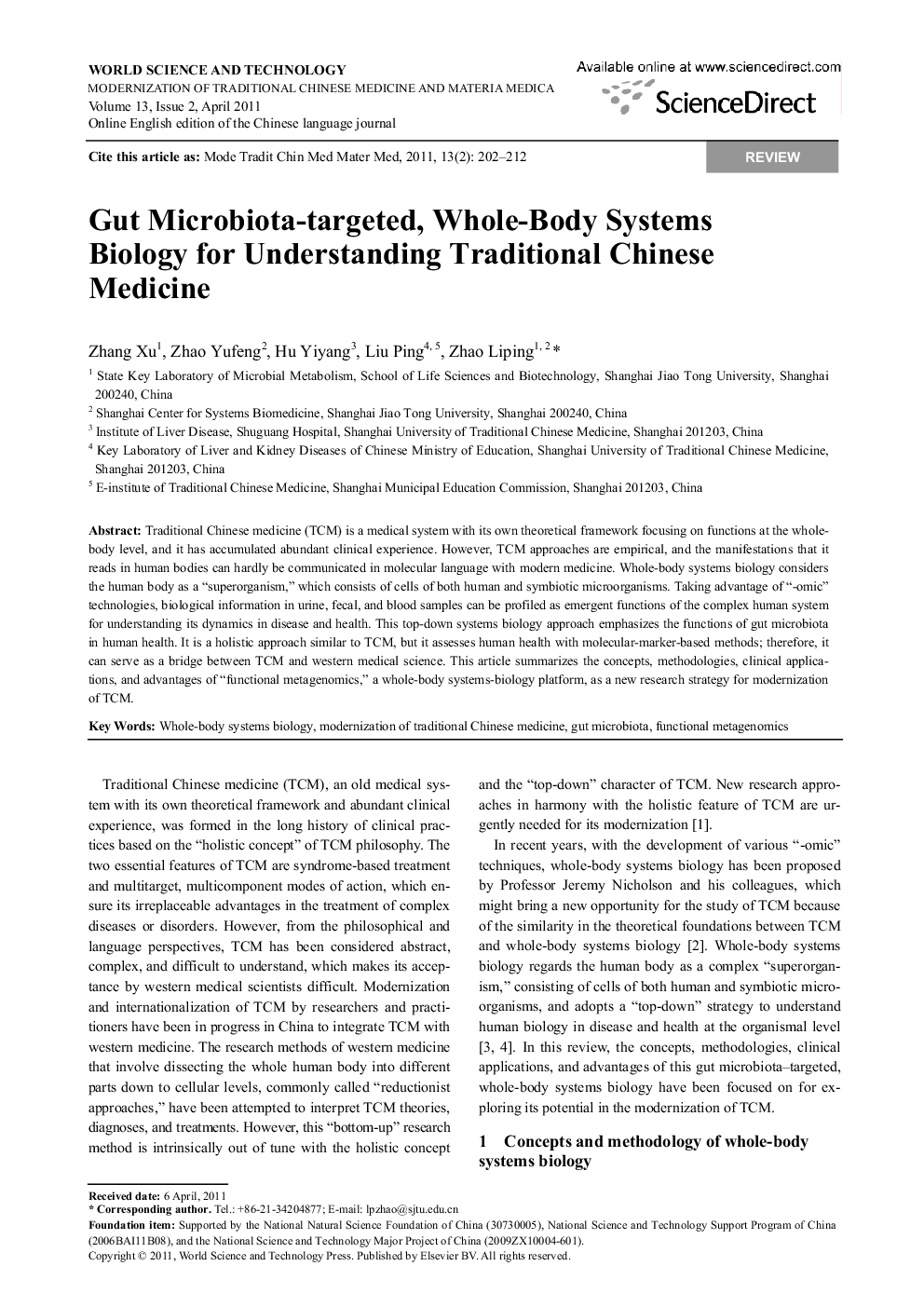| Article ID | Journal | Published Year | Pages | File Type |
|---|---|---|---|---|
| 2575293 | World Science and Technology | 2011 | 11 Pages |
Traditional Chinese medicine (TCM) is a medical system with its own theoretical framework focusing on functions at the whole-body level, and it has accumulated abundant clinical experience. However, TCM approaches are empirical, and the manifestations that it reads in human bodies can hardly be communicated in molecular language with modern medicine. Whole-body systems biology considers the human body as a “superorganism,” which consists of cells of both human and symbiotic microorganisms. Taking advantage of “-omic” technologies, biological information in urine, fecal, and blood samples can be profiled as emergent functions of the complex human system for understanding its dynamics in disease and health. This top-down systems biology approach emphasizes the functions of gut microbiota in human health. It is a holistic approach similar to TCM, but it assesses human health with molecular-marker-based methods; therefore, it can serve as a bridge between TCM and western medical science. This article summarizes the concepts, methodologies, clinical applications, and advantages of “functional metagenomics,” a whole-body systems-biology platform, as a new research strategy for modernization of TCM.
